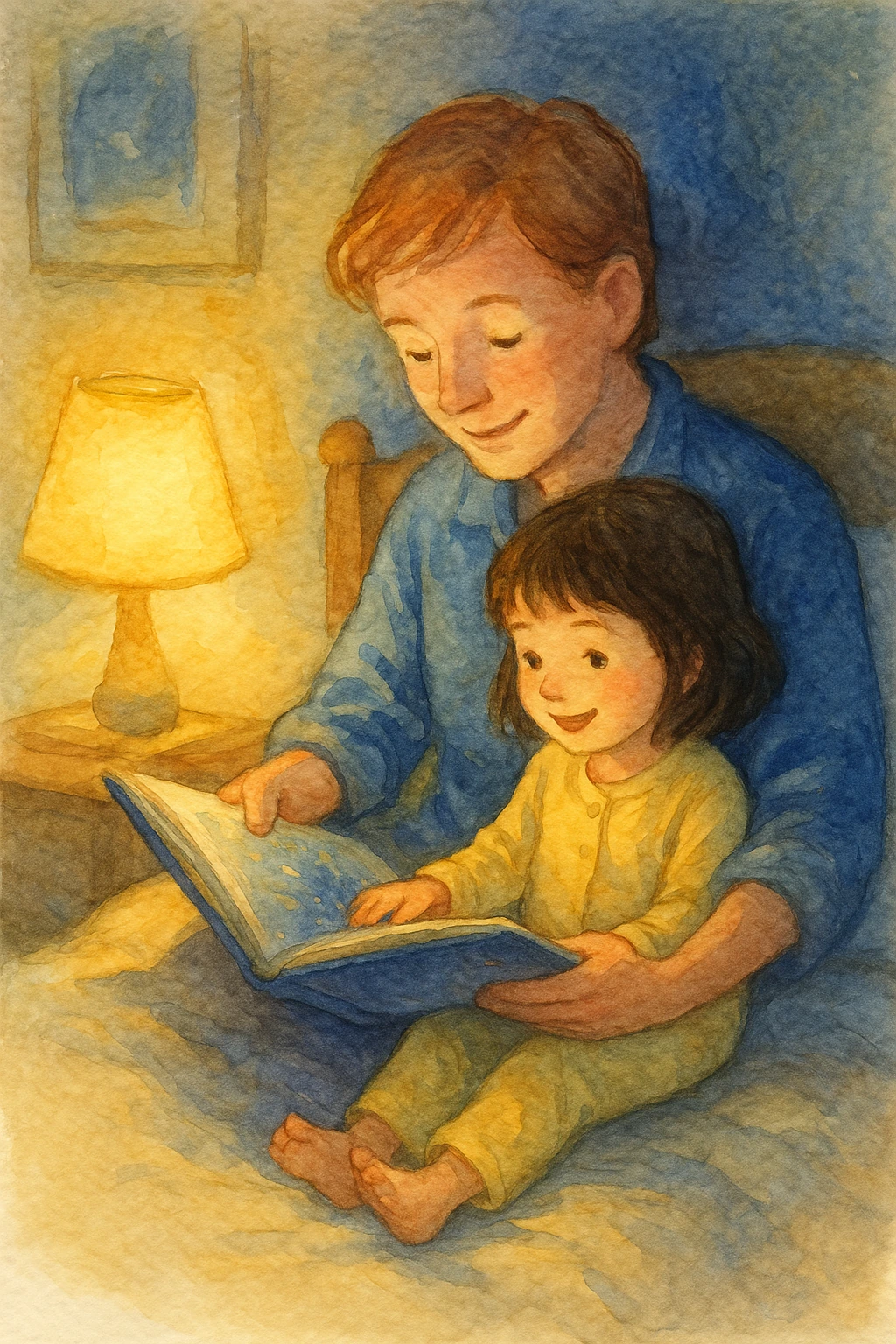From Screen to Book - Personal Story as an Enjoyable Alternative to Screen Time
When a child has a book where they are the star, reading becomes an active and engaging activity that successfully competes for attention against apps and games
The Challenge of Screen Time
Many parents are familiar with the daily struggle of limiting their children's screen time. Tablets, smartphones, and television attract the attention of little ones, and sometimes it seems that a simple book simply can't compete. But what if the book was as exciting and tempting as a computer game?
A personal book, where the child is the hero, can be the answer you're looking for. When a child has a book where they are the star, reading becomes an active and engaging activity. Instead of passively watching a screen, they become emotionally involved in the story.
Why Books Can Beat the Screen
📱 Screen Time
- Passive viewing
- Short and fast content
- Less imagination
- Less interaction
- Less learning
📚 Personal Book
- Active engagement
- Deep and detailed content
- Imagination and creativity
- Interaction with parents
- Meaningful learning
The Child's Active Engagement
When a child has a book where they are the star, reading becomes an active and engaging activity. Instead of passively watching a screen, they become emotionally involved in the story. They want to know what will happen to the character based on them, and they immerse themselves in the literary adventure.
Suddenly, the book successfully competes for attention against apps and games, because it provides an experience tailored specifically to the child. In other words, a personal book can make a child as excited about a book as they would be about a new computer game - maybe even more.
Natural Curiosity
The child is curious to know what will happen to "them" in the story. They don't just read - they explore their own adventures, creating an internal drive to continue reading. This curiosity successfully competes with the temptations of the screen.
Benefits of Reading Books Over Screen Time
🧠 Develops Thinking
Reading a book develops deep thinking, unlike passive screen viewing. The child needs to process information, think about the plot, and understand the messages.
🎨 Develops Imagination
Reading encourages imagination and creativity, while screen time often presents ready-made images that leave no room for imagination.
💬 Develops Language
Reading a book enriches vocabulary and improves language skills, while screen time often presents simple and limited language.
⏰ Develops Concentration
Reading a book requires sustained concentration, while screen time often presents short and fast content that reduces concentration ability.
Quality Family Time
Moreover, reading a book develops skills in children that are difficult to acquire from watching short videos. Reading requires concentration, develops thinking and imagination, and enriches language. And when all these benefits come in a personal and exciting package, the child is less resistant to putting the screen aside for a few moments.
They may even look forward to their reading time, because it has become an enjoyable experience for them - not a forced task. Shared reading with parents creates quality family time that has no substitute.
Family Connection
Reading a personal book with the child creates natural and deep conversation. When the child is the hero, it's easier for them to express what they feel through identification with the character. This creates a deep connection between parents and children.
Practical Tips for Replacing Screen Time
⏰ Set Regular Reading Time
Set a regular time each day for reading the personal book. This will help the child anticipate this time and prepare for it.
🎯 Start with Beloved Topics
Start with topics the child especially loves. If they love space, create a story about an astronaut. If they love animals, create a story about adventures with animals.
💬 Encourage Conversation
Encourage conversation about the story. Ask the child what they think about the plot, how they would behave in a similar situation, and what they learned from the story.
🔄 Repeat the Story
Repeat the story again and again. Children love to hear the same story multiple times, and this strengthens their connection to the book.
Long-term Benefits
Replacing screen time with personal books affects the child in the long term:
Developing Learning Skills
The child develops learning skills that can help them in school. They learn to concentrate, process information, and think deeply.
Developing Communication Skills
The child develops communication skills that can help them in life. They learn to express themselves, listen to others, and conduct deep conversations.
Developing Creativity Skills
The child develops creativity skills that can help them in life. They learn to think outside the box, create creative solutions, and develop new ideas.
Developing Empathy Skills
The child develops empathy skills that can help them in life. They learn to understand others' emotions, help others, and develop social connections.
Start Replacing Screen Time with Personal Books
If you're looking for a creative way to reduce your children's screen time, consider offering them a book where they are the stars. Let the screen rest occasionally - and instead, invite your child to dive into an engaging personal story.
Create Personal Book Now